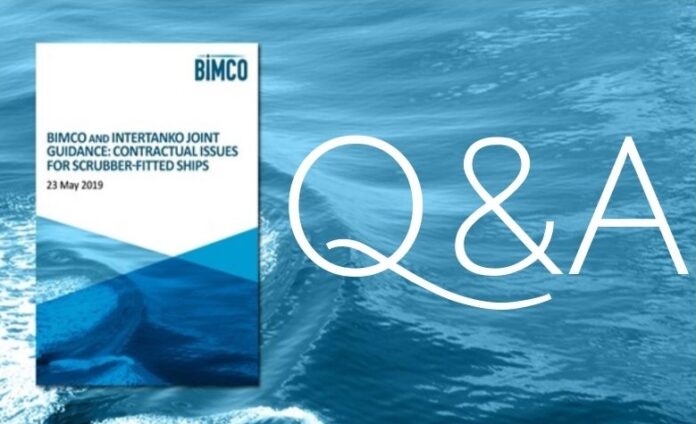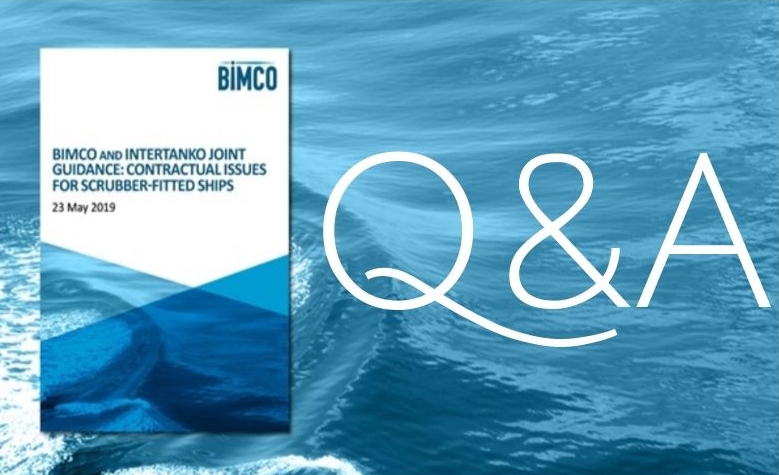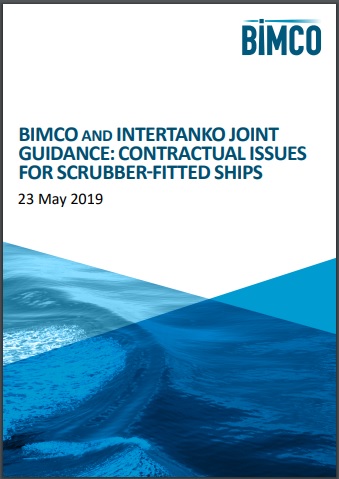
(www.MaritimeCyprus.com) BIMCO and INTERTANKO have jointly published Q&As addressing the contractual implications owners and charterers should keep in mind when chartering ships fitted with scrubbers. The Q&As highlight the key charter party clauses and concepts which should be reviewed for both time and voyage charter parties.
These Q&As have been produced jointly by INTERTANKO and BIMCO with the assistance of the North of England P&I Club. They focus on the potential contractual issues that parties should be aware of when chartering scrubber-fitted ships. The objective is to highlight and address the relevant clauses and concepts charterers and owners should take into consideration during their negotiations.
Much has been written about the introduction of the ‘Global Sulphur Cap’ of 0.50% m/m (mass for mass) for fuel oil under MARPOL Annex VI which comes into force on 1 January 2020; also the 0.10% m/m sulphur limit within emission control areas. Many owners have also already chosen their route to MARPOL Annex VI Regulations 14.1, 14.3 and 18 compliance which can be achieved in one of two ways:
- By using fuel oil with a sulphur content that does not exceed 0.50% m/m, or 0.10% m/m while the ship is operating (‘low sulphur fuel oil’).
- By using ‘equivalents’ which are alternative methods that are at least as effective in terms of emission reductions as using low sulphur fuel oil. ‘Equivalents’ includes the installation of exhaust gas cleaning systems, or ‘scrubber(s)’. See MARPOL Annex VI Regulation 4 and the 2015 Guidelines for exhaust gas cleaning systems, adopted by resolution MEPC.259(68) (currently under review). Fuel oil cleaned by scrubbers will have a sulphur content above 0.50% m/m (‘high sulphur fuel oil’).
Both BIMCO and INTERTANKO are neutral as to which option should be chosen. It is up to each individual owner to decide which option is best for their ship’s operation after conducting a proper assessment of the pros and cons of each option including safety and operational issues, price differentials between low and high sulphur fuel oil, fuel availability, capital investment, payback time, trading patterns and charter rates. International, regional and national regulatory requirements may also play a part in this decision.
However, both Associations have been faced with a series of questions from Members who have fitted or are contemplating fitting scrubbers concerning how the use of a scrubber may impact on their contractual arrangements. These questions on both time and voyage chartering issues form the basis of the Q&A section below. They do not address questions relating to the technical and operational impact of installing a scrubber. Such information is available from numerous online sources.
Both Associations have decided, for the time being at least, not to develop a “standard” scrubber clause for time or voyage charter parties. The decision to install and operate a scrubber is seen primarily as a matter of commercial negotiation between owners and charterers relating to the division of costs and benefits. The need for a clause will, however, be kept under regular review.
Click on below image to download the document:
For more news articles concerning IMO 2020 sulphur cap, click here














